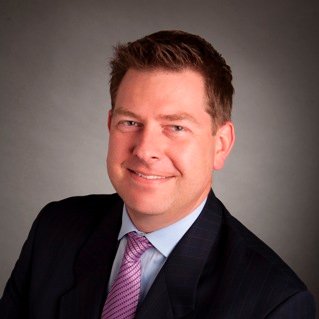Fear of Missing Out (FOMO), a term linked to teenage fear that by missing a social event they will miss out on something great, can be just as unhealthy for the financial health of law firms as for a 13-year-old. In the legal industry, many firms still fear specialization because, on the surface, specializing narrows the pool of potential clients. Yet by failing to specialize, you wind up in a large but hyper-competitive pool with narrow margins and a lot of sharks. If you’re in the FOMO boat, you’re likely to find yourself in such choppy waters.
Fortunately, there’s a cure for law firm FOMO: FMM, or Focus Means Money.
A recent panel discussion at the Marketing Partner Forum provided rich insights on the rationale for FMM and, equally important, how to implement it. The panel featured in-house counsel, partners at several niche law firms and several consulting firms, who shared their stories and spoke to the benefits of specialization.
Panel discussion: “The Market Settling: Assessing Strategic and Profitability Measures in Practice, Specialization and Segmentation”
Moderator:

Jan Anne Dubin, Principal, Jan Anne Dubin Consulting
Panelists:
 |
 |
|
| Nathan A. Darling, Chief Business Development and Market Officer, Beveridge & Diamond, P.C. | Dan Harper, General Counsel, GEA Farm Technologies, Inc. |
 |
 |
|
| Mark Klender, Principal, Strategy and Operations and Service Delivery Transformation, Deloitte Consulting | Tim Mohan, Chief Executive Partner, Chapman and Cutler, LLP |
 |
||
| Jaimala K. Pai, Principal Legal Counsel in New Business Models Health Law, Medtronic |
The untold benefits of specialization
The panel briefly touched on the usual benefits we hear about related to specialization. First, you/your firm become the go-to resource in a particular industry or practice area. As you become known in one area and jettison distractions, you increase the potential for profitability. Additionally, specialization can make it easier to scale because at each level you are building on an existing foundation instead of starting from scratch
Focus and you will be found
The message from Dan and Jaimala was clear. They know the specific expertise they are looking for, and know when it’s not there. Dan looks for expertise within farm manufacturing equipment and familiarity from a farmer’s perspective, whether driving a tractor or working within a regulatory body. Just having manufacturing expertise does not cut it.
Jaimala’s experience in the medical technology/healthcare industry has been similar. Far deeper than just healthcare, she is looking for expertise with medical technology (medtech) — not pharmaceuticals and general healthcare.
In order to find those with this specific expertise, she talks with colleagues and searches online. Her primary method of sorting the wheat from the chaff is looking at online biographies to see if they mention the specialized skills and experience she is looking for. She skips “laundry list” bios and counsels lawyers to overcome their fear of missing out, and hone in on what they do and who they do it for.
Bottom line: If you think you are casting a wider net by putting in everything you’ve ever done, you may really be tearing a hole in that net and driving prospective clients away.
How to specialize: leadership
Mark outlined the challenge for law firms in becoming more focused. Many law firms lack the centralized “command and control” centers that well-run professional services firms have, such as the Big Four accounting firms. For the most part, law firms tend to be politicized and factionalized, a deterrent to everyone rowing in the same direction.
Law firms also generally lack the well-developed business development and financial tracking systems needed to provide guidance on where to focus, i.e., high-margin clients.
Retention and rejection
Specialization means that when recruiting laterals, you know what you are buying. When you’re interviewing and recruiting laterals focused in the same area as the firm, you can read between the lines. In a smaller playing field, everyone knows everyone else, making targeted recruiting easier. It also increases the possibility that you can pull back the curtain and get more first-hand information. You know what questions to ask and how to evaluate responses because you work in the same narrow area. For similar reasons, focus increases retention. You understand each other’s needs and clients’ needs.
There are casualties, however, when transitioning from a full-service to a focused firm. Some lawyers may leave because the firm reduces their support of extraneous areas, and others because their expertise doesn’t fit in well.
Sub-specialties
Now hear this! Nathan, of the environmental law firm Beveridge & Diamond, reminded the audience that specializations have their own sub-specialties, which potential rainmakers can capitalize on. For instance, environmental law sub-specialties include air and water quality issues, oil and gas exploration, mineral and water rights, environmental remediation, compliance issues and numerous other niches. He advised finding the unmet need and filling it.
Where to specialize
Mark talked about Deloitte’s disciplined practice of determining where to specialize and the four determinants they look for, addressed by answering the following questions:
- How big is the market in terms of the professional services used?
- What’s the attractiveness to the firm?
- How does this industry fit in with the firm’s culture?
- What’s the attainability? Who’s in there now and how large a presence do they have? Can we successfully compete?
Tim went on to discuss how, in a sense, Chapman and Cutler’s transition from full-service to a specialization in financial services came from failure. They were doing a lot of work in financial services and tried to diversify the range of industries they worked in. After multiple unsuccessful attempts, however, the firm decided to go deeper into areas within financial services as opposed to diversifying. This decision was born of the recognition that it provided the greatest value and earned the highest margins in an area where it already had specialized knowledge.
FMM can pay off
It seems paradoxical if you’re trying to grow your firm, or if your margins are suffering, to decline RFPs and otherwise ignore prospective clients. Yet this business strategy is paying off big for law firms willing to implement and put resources forth to support it, just as it has in other industries.


